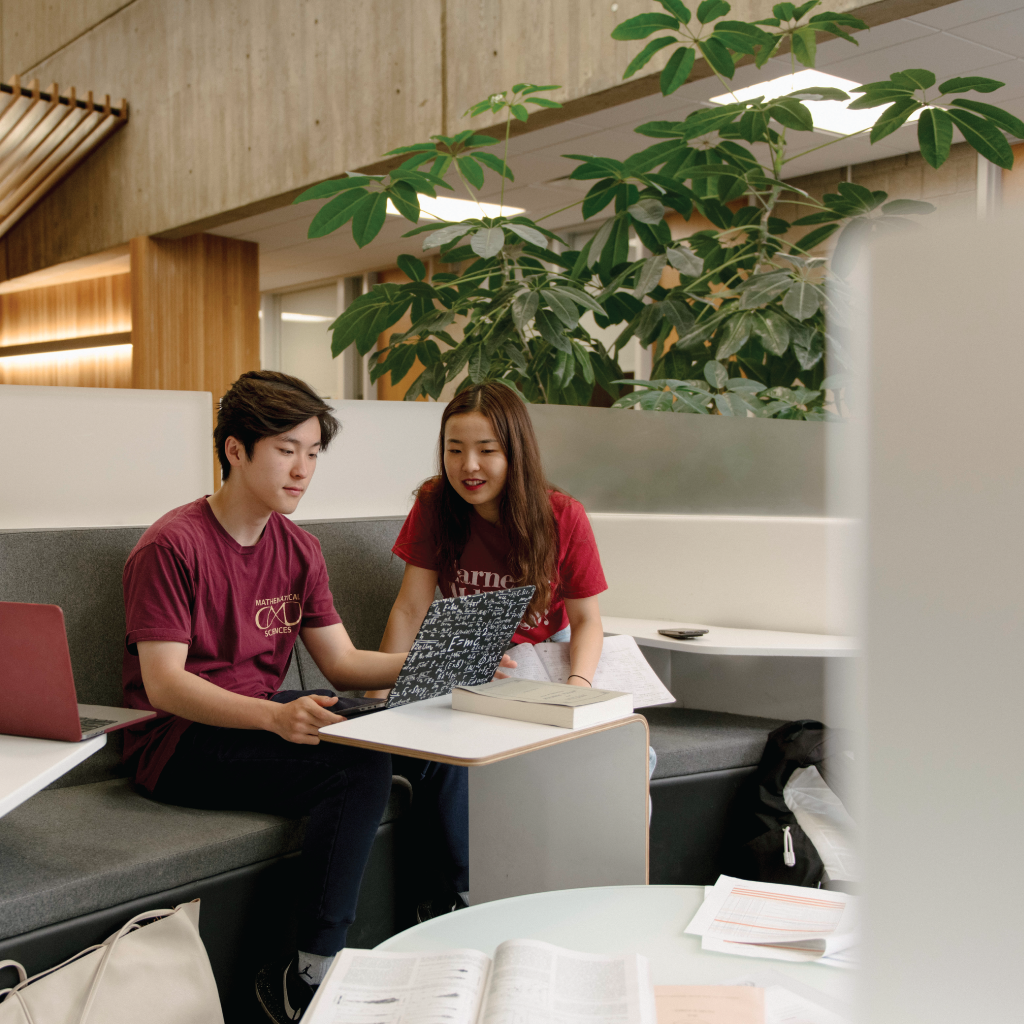
Collaboration is at the heart of the cutting-edge research and teaching that has put Carnegie Mellon University at the forefront of technological and social innovation. In the day-to-day workflow of research, this can mean the sharing of ideas or the results of analyses that come from spontaneous conversations with benchmates and office neighbors. Teaching is often a naturally collaborative endeavor as well, with students working together in the classroom and on client-based experiential projects.
However, in the past few months, daily collaborative interactions have had to adapt to a new reality of remote work and social distancing. To facilitate this transition, in both research and teaching contexts, the Libraries offer numerous digital tools and services to facilitate online collaboration. Through sharing of works-in-progress, research data and protocols, code and other components of the research workflow, researchers, instructors and students can continue to engage in productive and meaningful collaborations.
Librarian Huajin Wang recently had the opportunity to connect a few researchers from different disciplines to collaborate on their projects using the Open Science Framework (OSF). OSF is an open source platform that brings together various digital research tools into one collaborative workspace.
Carly Sombric, a postdoctoral researcher in Biomedical Engineering at the University of Pittsburgh, needed help with building machine learning models and data visualization on her research on human gait changes in response to stimuli. At the same time, Prasun Shrestha, a Masters student in the School of Public Policy and Management at CMU, was looking for summer data analysis consulting opportunities. Through open consulting hours co-hosted virtually by dSHARP and Data Collaborations Lab (dataCoLAB) at the Libraries, we connected them to work together. The Libraries provided advice on using OSF to share documents, code and data, which has helped get this new collaboration up and running. According to Carly, 'the research is progressing more quickly and at a higher level thanks to the collaboration.'
Another collaboration tool offered by the University Libraries is called LabArchives. LabArchives is an Electronic Research Notebook that can be used for securely storing, sharing, and managing research data and research outputs in any discipline. It can also be used in the classroom as a lab manual and notebook.
When we think of the word 'laboratory,' we tend to think of beakers, lab coats, and pipettes. While LabArchives is a great platform for managing data and workflows in those settings, it's also highly suitable for managing the research process in humanities, fine arts, and social sciences research! Sarah Werner, Ph.D. Candidate in Biological Sciences, has found LabArchives to be especially useful for maintaining her own habits in naming, organizing, sharing, and publishing her data as she continues her research from home.
'I began using LabArchives last fall, which has been intensely useful due to the Covid-19 pandemic. In March, when I prepared to work from home, I did not have to worry about taking home countless notebooks; I took my laptop home with me as usual.'
Sarah also uses protocols.io, a free and open access tool for recording and sharing detailed up-to-date research methods and protocols that allows researchers to easily create, edit, share, and get credit for their protocols. Protocols.io also provides an open access hub for scientists to communicate improvements and corrections to scientific methods. The platform is useful for researchers in any discipline that uses a step-by-step methodology, such as life sciences, chemistry, engineering, and is also increasingly used to document and share computational workflows. Sarah appreciates the platform's ability to help research teams collaborate from a distance through individual and group accounts, and the version control provided by the platform.
If you have questions about any of these tools, or other ways the Libraries can help with online collaboration, please get in touch!
